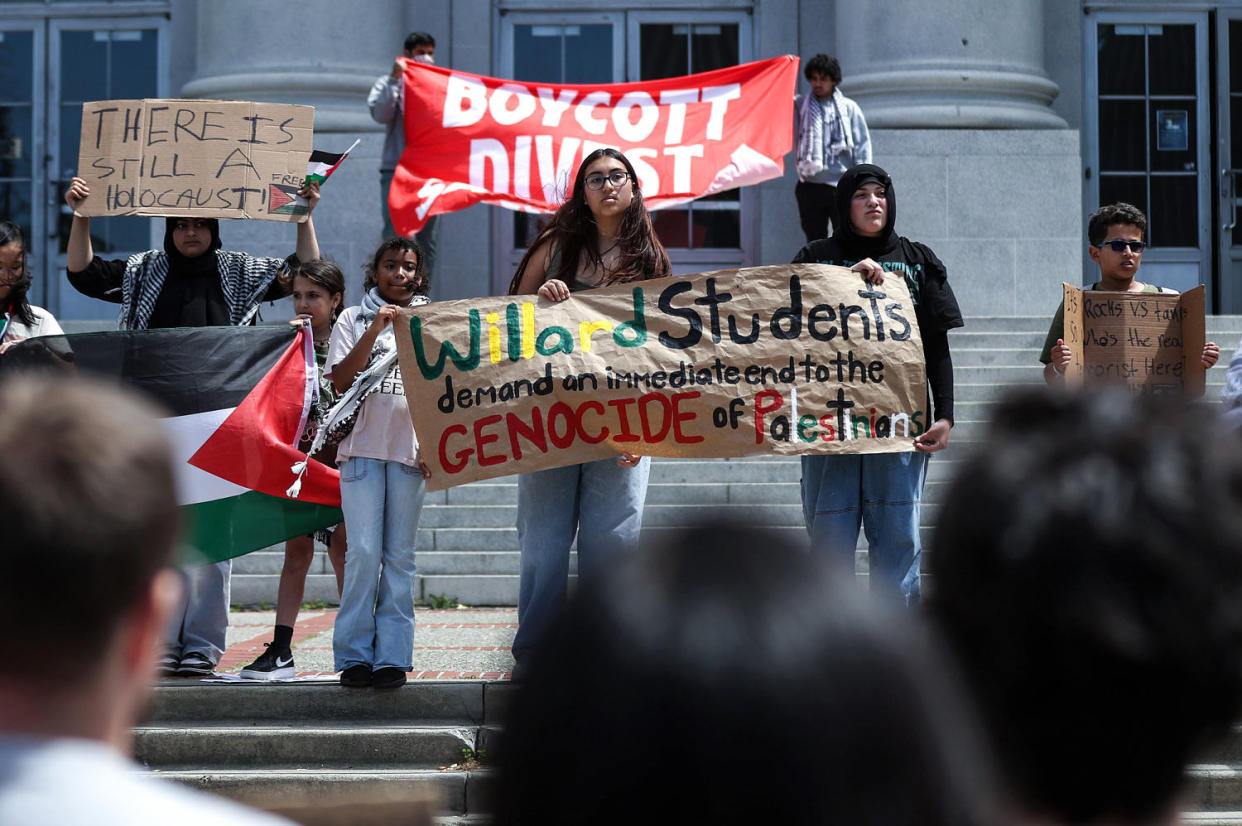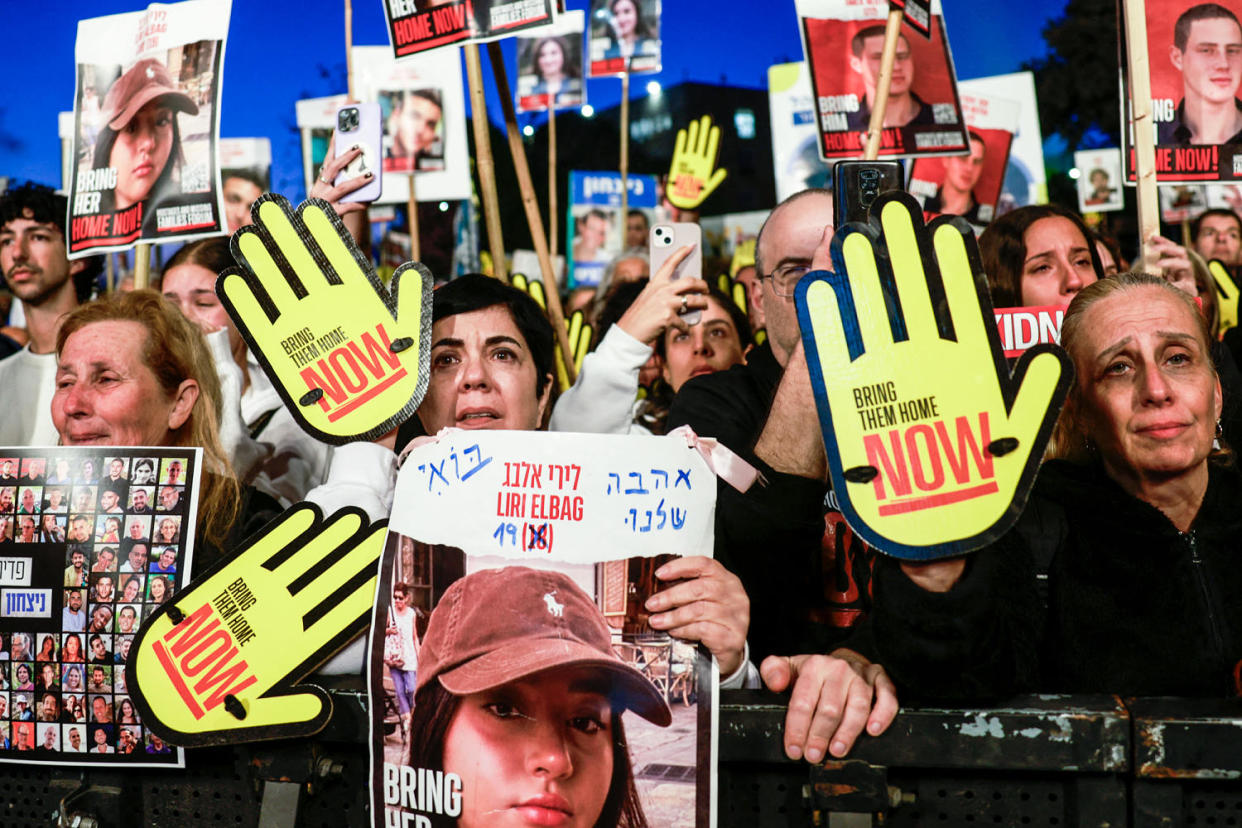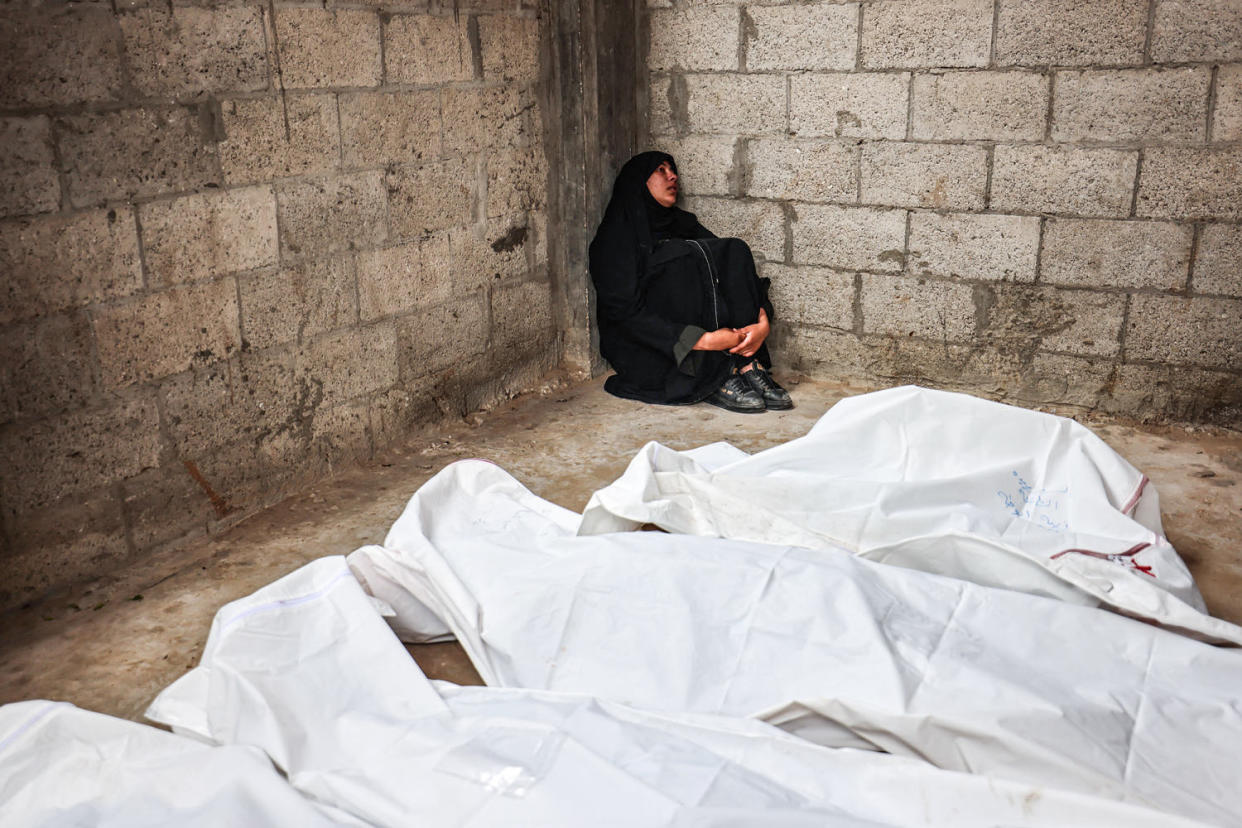U.S. pushes for Gaza cease-fire, seeing narrow window for a deal before Israel's attack on Rafah
RIYADH, Saudi Arabia — U.S. and Arab leaders are expressing concerns that newly revived talks could be the last chance for a cease-fire and hostage release before the war could explode with a threatened Israeli attack on Gaza’s southernmost city of Rafah.
As Secretary of State Antony Blinken met with Arab leaders in Saudi Arabia's capital Riyadh on Monday, there were urgent calls for a deal between Israel and Hamas that would head off an assault on Rafah where more than 1 million people are sheltering.
Blinken's visit came after President Joe Biden reiterated U.S. opposition to a Rafah operation in a call with Israeli Prime Minister Benjamin Netanyahu on Sunday.
U.S. officials do not believe Israel is ready to launch a full-scale ground incursion of Rafah, providing a crucial window to secure a deal for a truce and the release of hostages still held by Hamas, two people familiar with the American position told NBC News.
The diplomatic push comes as protests against Israel’s actions rock college campuses across the U.S. and as Israel fears its leaders could soon face arrest warrants from the International Criminal Court.

Blinken, speaking in Saudi Arabia’s capital, Riyadh, said that the cease-fire proposal handed to Hamas by mediators from Qatar and Egypt was “extraordinarily generous.” He added that Hamas had to “decide quickly” about the offer and that he was “hopeful that they will make the right decision.”
An Israeli official and an Arab diplomat with knowledge of the negotiations told NBC News that the deal on the table would see 33 hostages freed in the first stage in exchange for a temporary cease-fire and the release of Palestinian prisoners.
The freed captives would be made up of women, children, the elderly, and those with serious medical conditions, the official said, adding that earlier talks had focused on a deal for 40 hostages but that Hamas has indicated it may not have 40 living hostages who fit that criteria.
Israeli officials have previously said that 133 hostages remain in Gaza, although 34 were thought to be dead.
In a significant softening of Israel’s position, senior administration officials and Arab diplomats said Israel has for the first time indicated it would accept a sustained cease fire lasting more than six weeks, as the U.S. has been proposing.
And two senior officials, as well as an Arab diplomat, said everything rests on Hamas leader Yahya Sinwar, believed by all sides to be underground in the terror organization’s network of tunnels.
A Hamas political leader tells NBC News “The new proposal is a positive development, but it is too early to be optimistic.”
The Hamas leader said that because of the group’s long experience with the Israeli government, they “cannot be sure until the final moment.”
The leader added that “some issues need careful negotiations and clear confirmation”
Talks had been at an impasse for weeks, but U.S. officials said they had been encouraged that Hamas had released two videos showing proof of life of three captives, which might indicate the militant group's interest in making a deal.
“If the hostages are not released soon, there is no way to hold back the Israelis on Rafah,” an Arab diplomat involved in the talks told NBC News exclusively Monday. “An attack on Rafah would give Sinwar the support he needs to hold out for the destruction of Israel.”

Were a cease-fire to take effect and a deal struck to release the remaining hostages, U.S. officials believe that Netanyahu, who is coming under increasing pressure at home to secure their freedom, would find it harder to resume major military operations in Gaza, the two sources said.
There have been widespread protests in Israel calling for Netanyahu and his government to do more to secure the release of the remaining hostages.
But Israel’s government has appeared divided on the proposal in recent days.
Right-wing members of Netanyahu's Cabinet have signaled their opposition, saying Israel should focus on attacking Rafah, and threatened to leave the government if the deal goes ahead. More moderate members, including war Cabinet minister Benny Gantz, have said a hostage deal is more urgent than an offensive in Rafah.
Netanyahu has repeatedly signaled his intent to launch a full-scale ground invasion on the city where it says many remaining Hamas militants are holed up.
Blinken — on his seventh trip to the Middle East since the Israel-Hamas war started in October — told Arab officials on Monday that the best way to ease the humanitarian catastrophe in Gaza would be to conclude a cease-fire agreement to release hostages.
“The most effective way to address the humanitarian crisis in Gaza, to alleviate the suffering of children, women and men, and to create space for a more just and durable solution is to get a cease-fire and the hostages out,” he said at the Gulf Cooperation Council of foreign ministers in Riyadh.
Moving toward a hostage deal and temporary cease-fire that could be extended is the chief goal of Blinken's trip, U.S. officials said.
They added that Blinken would meet with Egyptian and Qatari officials at the forum. Both countries have been pushing for a truce in Gaza and a high level delegation from Egypt visited Israel last week to discuss a prolonged cease-fire.
Blinken will then travel to Jordan and Israel.
The U.S. also continues to pursue a broader deal that would involve a normalization of relations between Saudi Arabia and Israel, a path toward an independent Palestinian state and a plan to rebuild Gaza, the American officials said.

Egyptian Prime Minister Mostafa Madbouly, who is also attending the forum, said Monday that the most “important thing now is to avoid an attack on Rafah,” because it would be “catastrophic.”
Rafah is the chief entry point for desperately needed aid from Egypt, which is especially concerned about the war spreading across its borders. Madbouly added that there had been progress but that there were still “fundamental issues” on both sides that needed to be ironed out. “There must be compromises on both sides,” he said.
Saudi Arabian Finance Minister Mohammed al-Jadaan also said at the forum that “cool-headed countries and leaders and people need to prevail.” He added that the region needed “stability.”
Meanwhile, Israel’s military continued to bombard Rafah from the air over the weekend. Palestinian health officials said at least 22 people, including six women and five children, had been killed.
Andrea Mitchell and Keir Simmons reported from Riyadh, and Raf Sanchez from Tel Aviv.
